The art of moderating literary conversations
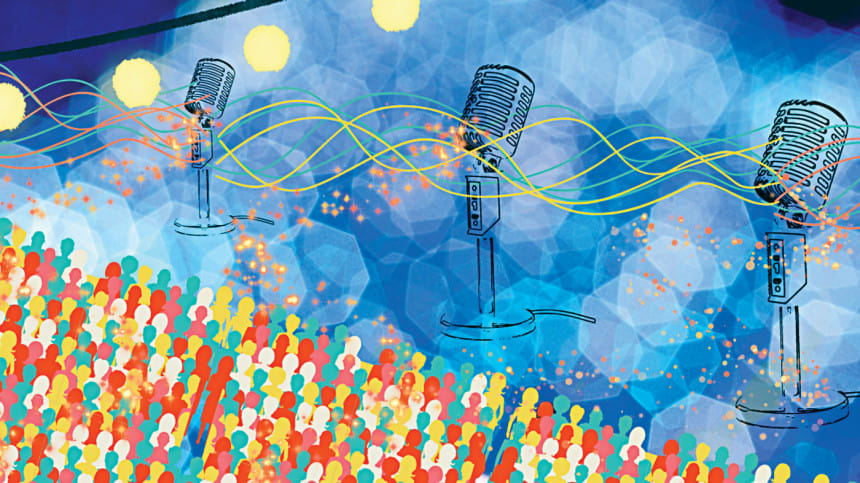
Dhaka Lit Fest swept the netizens of Dhaka till Sunday, January 8, engaging them in stimulating discussions and leaving them with a thought to take away. Viewers pondered, roamed under the open skies (and at times in auditoriums), witnessing discussions of eminent panellists—an event that is quite the rarity in this city.
Behind the flashy lights and names, I witnessed what made the audience attend a particular session, among so many others that went on, and what made them get up and leave a session in between.
And eventually, I figured it all came down to the grip of the moderator.
The goal of a moderator ideally should be to facilitate a productive and respectful conversation among participants, while also ensuring that the discussion stays on topic and is conducted in a professional manner.
Sadaf Saaz, Producer and Co-Director of Dhaka Lit Fest, shares, "We spend a lot of time selecting different speakers for a topic, often putting together seemingly 'unusual' combinations, which spark discussion and debate, and ensure a balance of what they can each bring to the panel."
These are the choices that leave a mark on the audience.
"For example, in my sessions [on Microtales]", Sabrina Ahmad shares, "we were doing a verbal exercise. I noticed that most of the crowd were too shy to participate. So halfway through the session we decided to change it up and I started walking through the rows of the audience to make the session more lively and informal."
Maitreyi, a writer and visitor to the DLF this year, points out, "In the Tomb of Sand session with Geetanjali Shree and Daisy Rockwell, Rifat Munim highlighted how a moderator can be a catalyst to an engaging dialogue between the panellists and the audience, as opposed to each question going off on a different tangent. Their conversion had us rapt with attention."
When asked how he achieved this effect, writer and editor Rifat Munim responds, "When the topic is the book Tomb of Sand by Geetanjali Shree, the objective is to make the author speak about her experiences of writing the book and from there, many relevant aspects come up, which can be broken down further. It's important to research the topic and to familiarise yourself with any relevant background information. This can help to ensure that the discussion stays on topic and that all participants are on the same page."
Sabrina Fatma Ahmad, Deputy Editor of MW magazine and founder of the annual Sehri Tales challenge, who was also a speaker and a moderator at DLF, said, "As a panellist, I would expect the moderator to at least have an idea about what I do professionally and what I've been up to, with regards to my work."
Another key aspect is the ability to manage time effectively, ensure that all participants have an opportunity to speak and be prepared to redirect the discussion if any disruptions arise.
This includes being aware of any conflicts or tension that may arise among participants or with the audience, and working to resolve them in a way that is fair and respectful.
Indian politician Mohua Moitra was especially effective with this in her session on 'Settling Scores' with authors Iffat Nawaz, Shehan Karunatilaka, Elizabeth Shick and Vivek Menezes—"Let's remember that they have to be questions", she asserted before opening the floor to the audience.
In interactive sessions especially, it's also important for a moderator to actively listen. This means paying close attention to what participants are saying, and being able to understand their perspectives. This can help identify any areas of confusion or disagreement, and address them in a way that is respectful and non-confrontational.
"For example, in my sessions [on Microtales]", Sabrina Ahmad shares, "we were doing a verbal exercise. I noticed that most of the crowd were too shy to participate. So halfway through the session we decided to change it up and I started walking through the rows of the audience to make the session more lively and informal."
At times, even choosing the seemingly "right" people as moderators doesn't cut it. As a spectator, I've witnessed many moderators who were seemingly well-versed in the topic, lead very mundane sessions—where the conversational flow eventually became quite generalised. Eventually, those sessions were greeted with yawns, as opposed to "oohs and aahs".
"Moderating is an art", Sadaf Saaz reflects, "Despite the best laid plans we have surprises. Some moderators surpass our expectations, and make the sessions brilliant rather than just good. Some may not bring out what we had initially thought—but then manage to take the discussion in a wonderful unanticipated direction."
"We try and choose those who are conceptually clear, understand the breadth of the topic, but also help bring out the nuances", she adds.
Nazifa Raidah is a sub editor at the City desk, The Daily Star.
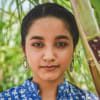
 For all latest news, follow The Daily Star's Google News channel.
For all latest news, follow The Daily Star's Google News channel. 
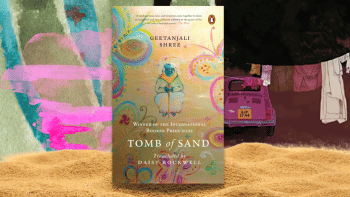
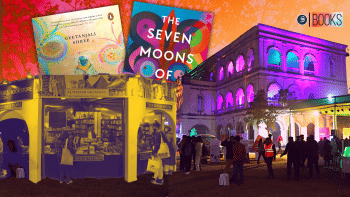
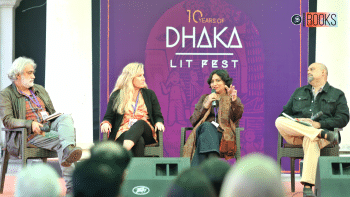



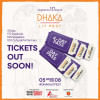

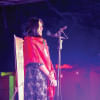




Comments